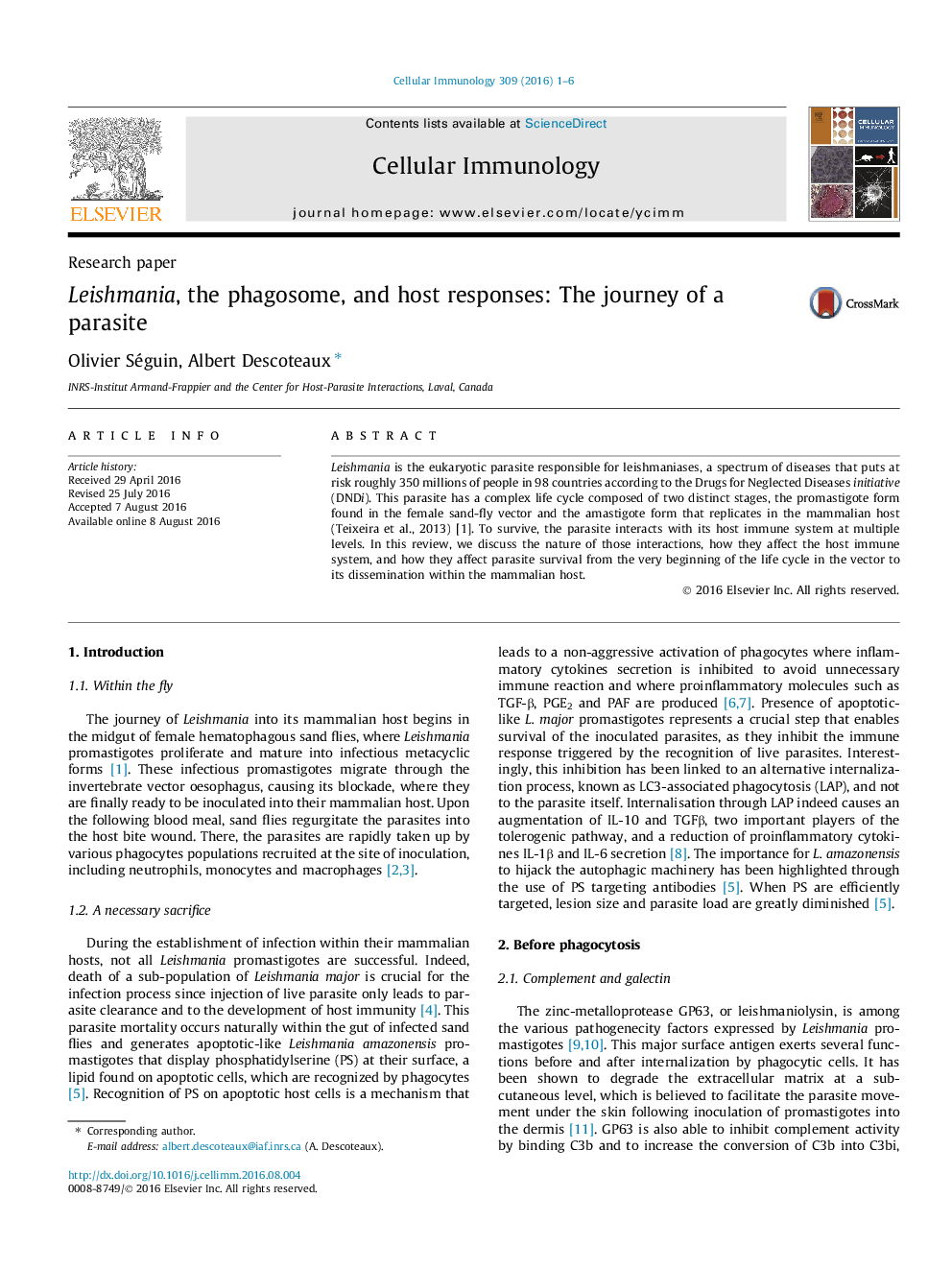| Article ID | Journal | Published Year | Pages | File Type |
|---|---|---|---|---|
| 5530661 | Cellular Immunology | 2016 | 6 Pages |
â¢Leishmania remodel their intramacrophage habitat.â¢The metalloprotease GP63 modulates phagosome properties.â¢Leishmania modulates host immune responses.
Leishmania is the eukaryotic parasite responsible for leishmaniases, a spectrum of diseases that puts at risk roughly 350Â millions of people in 98 countries according to the Drugs for Neglected Diseases initiative (DNDi). This parasite has a complex life cycle composed of two distinct stages, the promastigote form found in the female sand-fly vector and the amastigote form that replicates in the mammalian host (Teixeira et al., 2013) [1]. To survive, the parasite interacts with its host immune system at multiple levels. In this review, we discuss the nature of those interactions, how they affect the host immune system, and how they affect parasite survival from the very beginning of the life cycle in the vector to its dissemination within the mammalian host.
